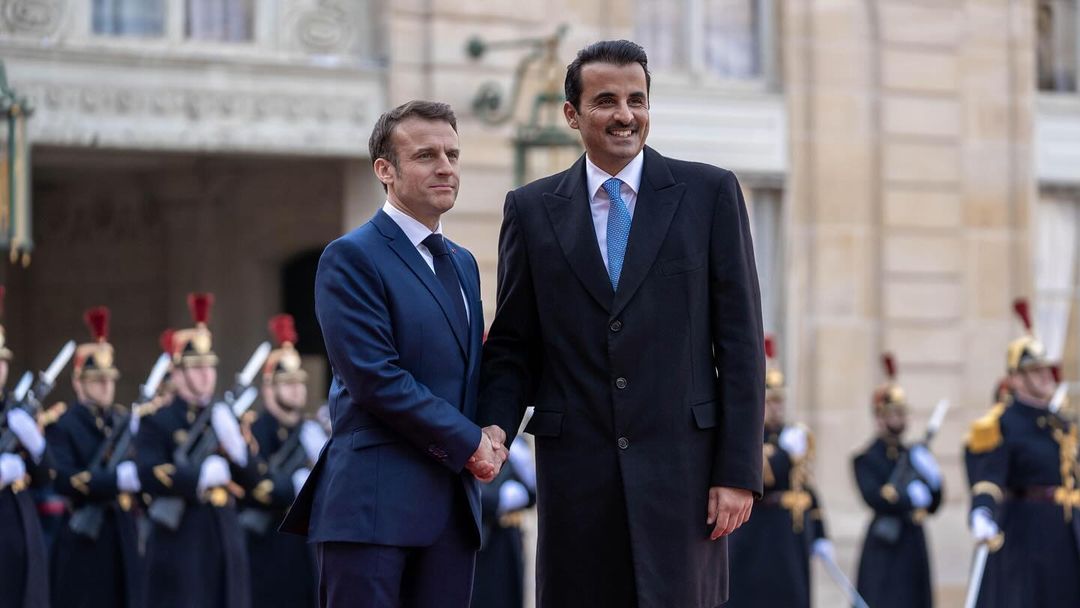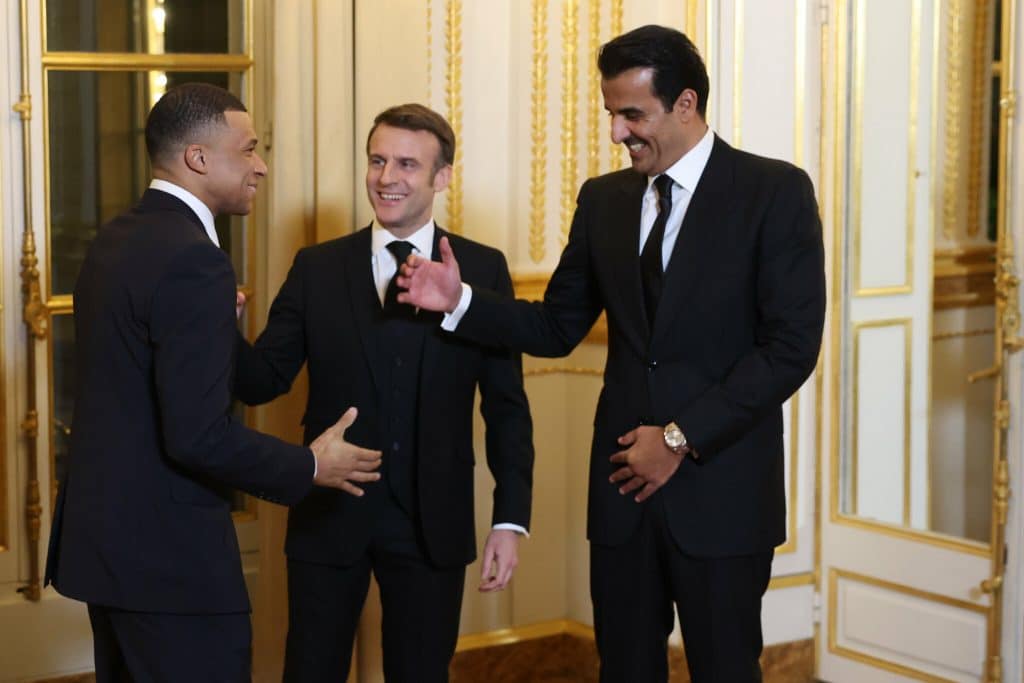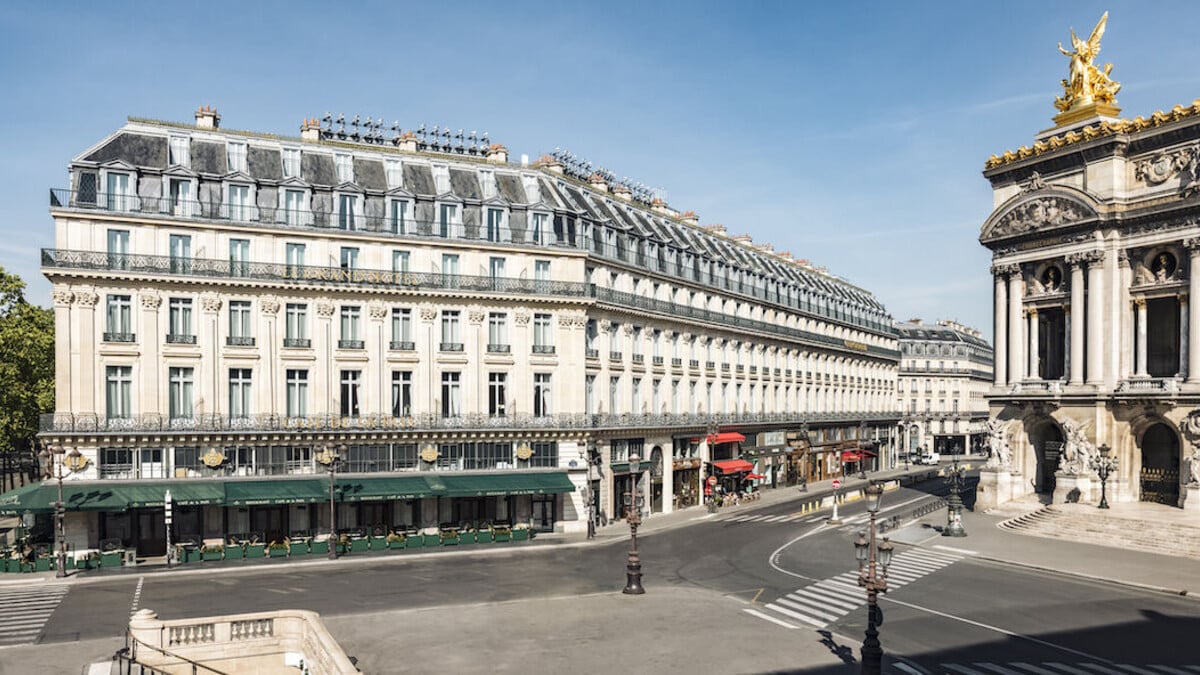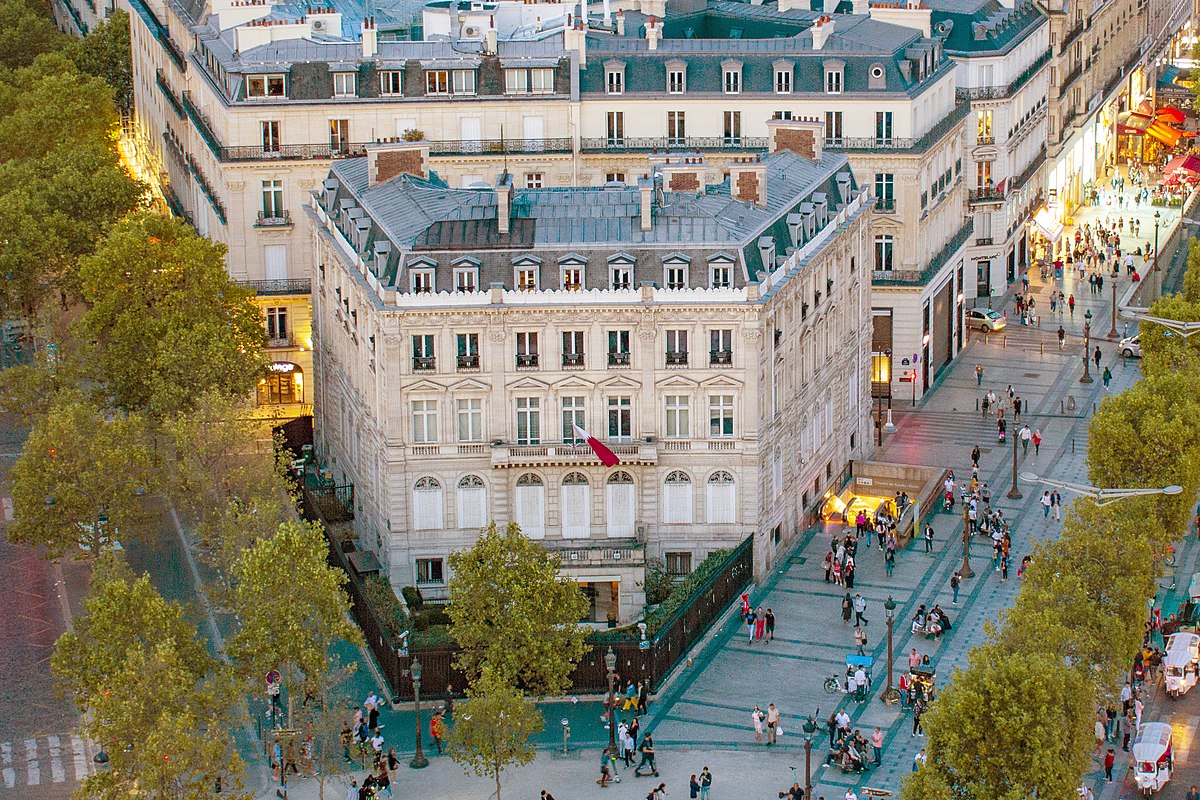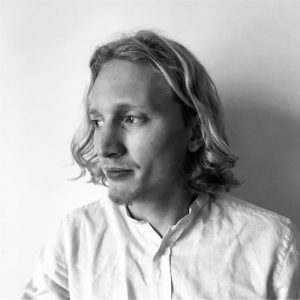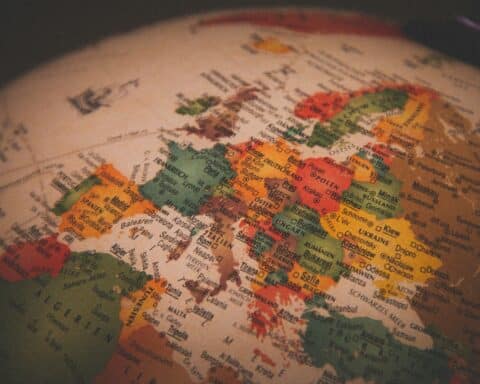Qatar is exerting a growing influence in France, with massive investments in various economic and cultural sectors. Endowed with considerable financial resources, the Persian Gulf kingdom is using its sovereign wealth fund to extend its influence worldwide, including in France. The Emir of Qatar’s recent state visit to France underlines the importance of the economic, diplomatic and cultural ties between the two countries.
Located on the edge of the Persian Gulf, Qatar is a country slightly smaller than the Île-de-France region. Endowed with substantial hydrocarbon reserves, mainly natural gas, the country experienced exponential growth in the late 1990s. Today, Qatar’s sovereign wealth fund totals over 450 billion dollars, spread across a wide range of investment sectors. These range from Qatar Airways to the Paris Saint-Germain soccer club.
As France strives to build a strategically advantageous global position, it has no hesitation in turning to this powerful bloc to forge alliances. Indeed, France is the leading European investor in Qatar, with investments totalling nine billion dollars in sectors such as energy, aeronautics, infrastructure and tourism.
On February 27 and 28, the Emir of Qatar, Tamim ben Hamad Al-Thani, made a state visit to France that highlighted the close relations between the two nations. The visit, the first of its kind in 15 years, testifies to the importance Qatar attaches to its partnership with France. It “constitutes an honor for France and illustrates the depth of the ties that unite our two countries”, underlined the Élysée Palace.
In particular, the Qatari emirate announced commitments to invest a massive 10 billion euros in France by 2030. These will focus on innovative sectors such as the energy transition, semiconductors, artificial intelligence and healthcare. This initiative aims to strengthen bilateral investment flows, underlining the growing importance of the economic relationship between the two countries.
The two nations are also gearing up to revitalize their cultural relations, with a forthcoming visit to Qatar by French Culture Minister Rachida Dati.
A peace agreement
At the heart of discussions between the Emir and French President Emmanuel Macron were efforts to secure a ceasefire in Gaza. Qatar, playing a central role in the negotiations, pledged to facilitate the release of Palestinian hostages, while France emphasized the absolute priority of freeing its nationals held by Hamas.
The two leaders “recognized the urgency and necessity of a significant increase in the access and flow of humanitarian aid throughout the Gaza Strip”, stresses the Elysée. The two countries thus signed a declaration of intent for enhanced humanitarian cooperation, including a joint commitment of 200 million euros for the Palestinians. The Elysée also announced that three Franco-Qatari cargo planes had been chartered to transport humanitarian and medical aid to Al-Arish, an Egyptian town near Rafah. This assistance included 75 tons of freight, ten ambulances, food supplies and almost 300 family tents.
This state visit is of particular importance in the context of current geopolitical challenges. As an influential mediator in the Middle East region, Qatar makes an essential contribution to resolving conflicts and promoting regional stability. Its economic partnership with France opens up new prospects for growth and cooperation in the key sectors of innovation and sustainable development.
Soccer, Qatar’s cultural nerve centre
Diplomacy aside, the country bordering Saudi Arabia has many strings to its bow that it wishes to activate to strengthen its influence. The Qatar Investment Authority, a sovereign wealth fund fueled by gas revenues, enables the country to invest increasingly in all sectors of the international economy. And the Qatari model does not hesitate to rely on sport. For some years now, the country has been hosting major sporting events, the most notable example being the Football World Cup in 2022.
The Emir’s state visit was marked by cultural and sporting events. The state dinner brought together personalities from the worlds of sport, business and culture. The event was a perfect illustration of the multifaceted nature of Franco-Qatari relations, encompassing diplomatic, economic and cultural spheres.
Guests included the famous French footballer Kylian Mbappé, Paris Saint-Germain president Nasser Al-Khelaïf, chef Alain Ducasse and the CEOs of LVMH, Qatar Airways and Airbus.
A strong appeal for Paris real estate
Real estate in the French capital has also been the focus of many generous investments by Qatar. The emirate holds an 11% stake in the Accor group, which manages numerous hotels in France. Above all, over the past twenty years, Qatar has acquired several prestigious addresses in Paris.
These include the famous Grand Hôtel, built in 1861 on the Boulevard des Capucines in the 9th arrondissement, which has played host to such eminent figures as Proust and Maupassant. Absorbed by the Qatari group Constellations in 2014 for 330 million euros, the hotel is now known as the Intercontinental.
In 2007, the French government sold the Hôtel Peninsula in the 16th arrondissement to Katara Hospitality, a subsidiary of the Qatari sovereign wealth fund. In the same year, the Royal Monceau in the 8th arrondissement became the property of the Qatari sovereign wealth fund. In 2010, the former Élysée Palace at 103 avenue des Champs-Élysées was acquired by the sovereign wealth fund. It had previously been the showcase of the LVMH group and then occupied by the HSBC bank.
The addresses are numerous. There’s also the Hôtel Landolfo-Carcano, now the headquarters of the Qatari Embassy in Paris. Not forgetting the Hôtel du Louvre, acquired in 2012 by Qatar’s sovereign wealth fund, the Hôtel Kinsky, bought by Qatar’s ruling family in 2006, and the Maison Delano, owned by the Katara Hospitality group.
Read also>JEFF BEZOS ONCE AGAIN BECOMES THE RICHEST MAN IN THE WORLD
Featured photo : © Instagram




